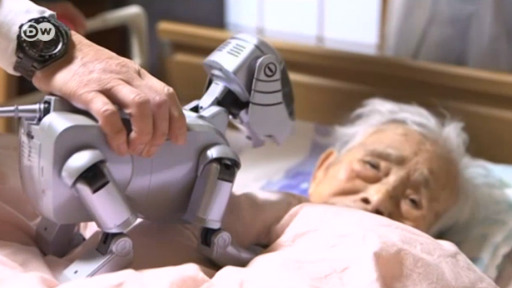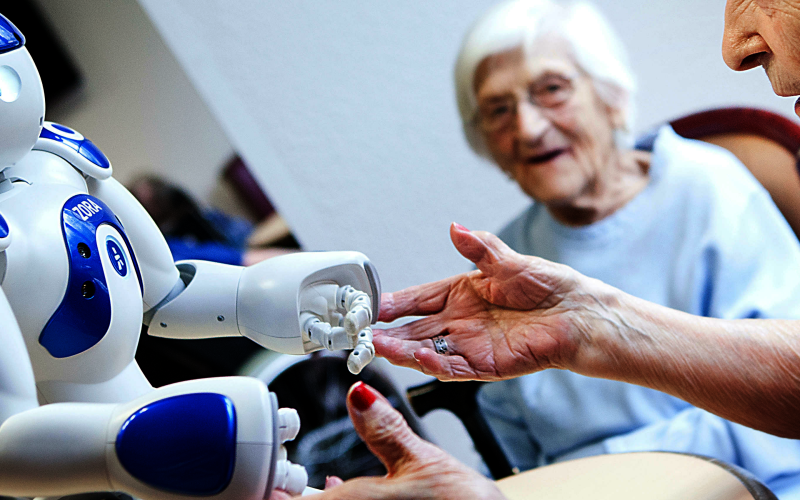In recent years, the field of robotics has made significant strides, permeating various sectors and revolutionizing traditional practices. One of the most promising areas where robotics is making a profound impact is in elderly care. With an aging global population, the demand for innovative solutions to support the elderly is more pressing than ever. Robotics offers a multitude of possibilities to enhance the quality of life for seniors, ensure their safety, and provide caregivers with much-needed assistance.
The Growing Need for Elderly Care Solutions
As people live longer, thanks to advancements in healthcare and improved living conditions, the proportion of elderly individuals in the population is increasing. This demographic shift presents unique challenges, including a higher prevalence of age-related illnesses, mobility issues, and the need for continuous care. Traditional caregiving resources are often stretched thin, with many families unable to provide the level of attention and support required. This is where robotics steps in, offering innovative solutions to meet these challenges head-on.
Robotics in Elderly Care: A New Frontier
Robotics in elderly care is not merely about replacing human caregivers; rather, it is about augmenting their capabilities and providing support where it is most needed. Robots can perform a variety of tasks that range from simple household chores to more complex functions like monitoring health and providing companionship.
Assistance with Daily Activities
One of the primary applications of robotics in elderly care is assisting with daily activities. Robots can help seniors with tasks such as cooking, cleaning, and even personal hygiene. For instance, robotic vacuum cleaners and automated kitchen appliances can reduce the physical burden on elderly individuals, allowing them to live more independently.
Health Monitoring and Medication Management
Robots equipped with advanced sensors and artificial intelligence can monitor vital signs, remind patients to take their medication, and even alert caregivers or medical professionals if an anomaly is detected. This continuous monitoring is crucial for managing chronic conditions and preventing emergencies. For example, wearable robots or robotic companions can keep track of heart rate, blood pressure, and glucose levels, providing peace of mind for both seniors and their families.
Mobility Assistance
Mobility is a significant concern for many elderly individuals. Robotics offers solutions such as robotic exoskeletons and smart walkers, which can help seniors maintain their mobility and independence. These devices provide support and stability, reducing the risk of falls and injuries, which are common among the elderly.
Social Interaction and Companionship
Loneliness and social isolation are major issues for many seniors, especially those living alone. Robotic companions, designed to interact socially, can provide much-needed companionship. These robots can engage in conversation, play games, and even recognize and respond to emotional cues, helping to alleviate feelings of loneliness and depression.

The Role of Artificial Intelligence in Elderly Care Robotics
Artificial intelligence (AI) plays a pivotal role in the development of robotics for elderly care. AI enables robots to learn from their environment, adapt to the needs of the individual, and perform tasks autonomously. This adaptability is crucial for providing personalized care, as each senior has unique needs and preferences.
For instance, AI-powered robots can learn a senior’s daily routine and preferences, adjusting their behavior accordingly. They can also recognize signs of distress or discomfort, prompting timely interventions. This level of personalization ensures that the care provided is not only efficient but also compassionate.
Challenges and Considerations
While the integration of robotics into elderly care presents numerous benefits, it also comes with challenges and considerations. One of the primary concerns is the acceptance of robotic care by the elderly. Many seniors may be hesitant to embrace technology, particularly if they perceive it as impersonal or intrusive. Education and gradual integration of robotic solutions can help mitigate these concerns, ensuring that seniors feel comfortable and secure with their robotic companions.
Additionally, ethical considerations must be addressed, particularly regarding privacy and data security. As robots collect and process sensitive health information, robust measures must be in place to protect this data from unauthorized access and ensure compliance with privacy regulations.
The Future of Robotics in Elderly Care
The future of robotics in elderly care is bright, with ongoing advancements promising even more sophisticated and effective solutions. Researchers are exploring the integration of robotics with other emerging technologies, such as the Internet of Things (IoT) and virtual reality, to create holistic care environments. These innovations could lead to smart homes where robotic systems seamlessly interact with the environment to provide comprehensive support for seniors.
Moreover, as robotics technology becomes more affordable and accessible, it is likely that a greater number of elderly individuals will benefit from these advancements. This democratization of technology ensures that the advantages of robotics in elderly care are not limited to a select few but are available to all who need them.
Conclusion
Robotics is transforming the landscape of elderly care, offering innovative solutions that enhance the quality of life for seniors and provide invaluable support to caregivers. From assisting with daily activities to offering companionship, robots are becoming indispensable allies in the quest to provide dignified, independent, and safe living conditions for the elderly. As technology continues to evolve, the potential for robotics in elderly care is boundless, promising a future where aging is not a burden but a journey supported by intelligent and compassionate technology.










